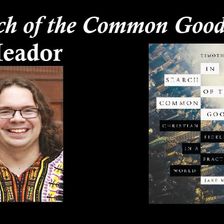The Parable of the Good Samaritan

The Parable of the Good Samaritan is much richer than many suppose. Paying attention to biblical echoes and parallels, both within and without the Lukan corpus, will alert us to much that we might otherwise have missed.
The Ian Paul article I mention can be read here: https://www.psephizo.com/biblical-studies/is-there-anything-new-to-say-about-the-good-samaritan/.
My blog for my podcasts and videos is found here: https://adversariapodcast.com/. You can see transcripts of my videos here: https://adversariapodcast.com/list-of-videos-and-podcasts/.
If you have any questions, you can leave them on my Curious Cat account: https://curiouscat.me/zugzwanged.
If you have enjoyed these talks, please tell your friends and consider supporting me on Patreon: https://www.patreon.com/zugzwanged. You can also support me using my PayPal account: https://bit.ly/2RLaUcB.
The audio of all of my videos is available on my Soundcloud account: https://soundcloud.com/alastairadversaria. You can also listen to the audio of these episodes on iTunes: https://itunes.apple.com/gb/podcast/alastairs-adversaria/id1416351035?mt=2.
More From Alastair Roberts






More on OpenTheo















